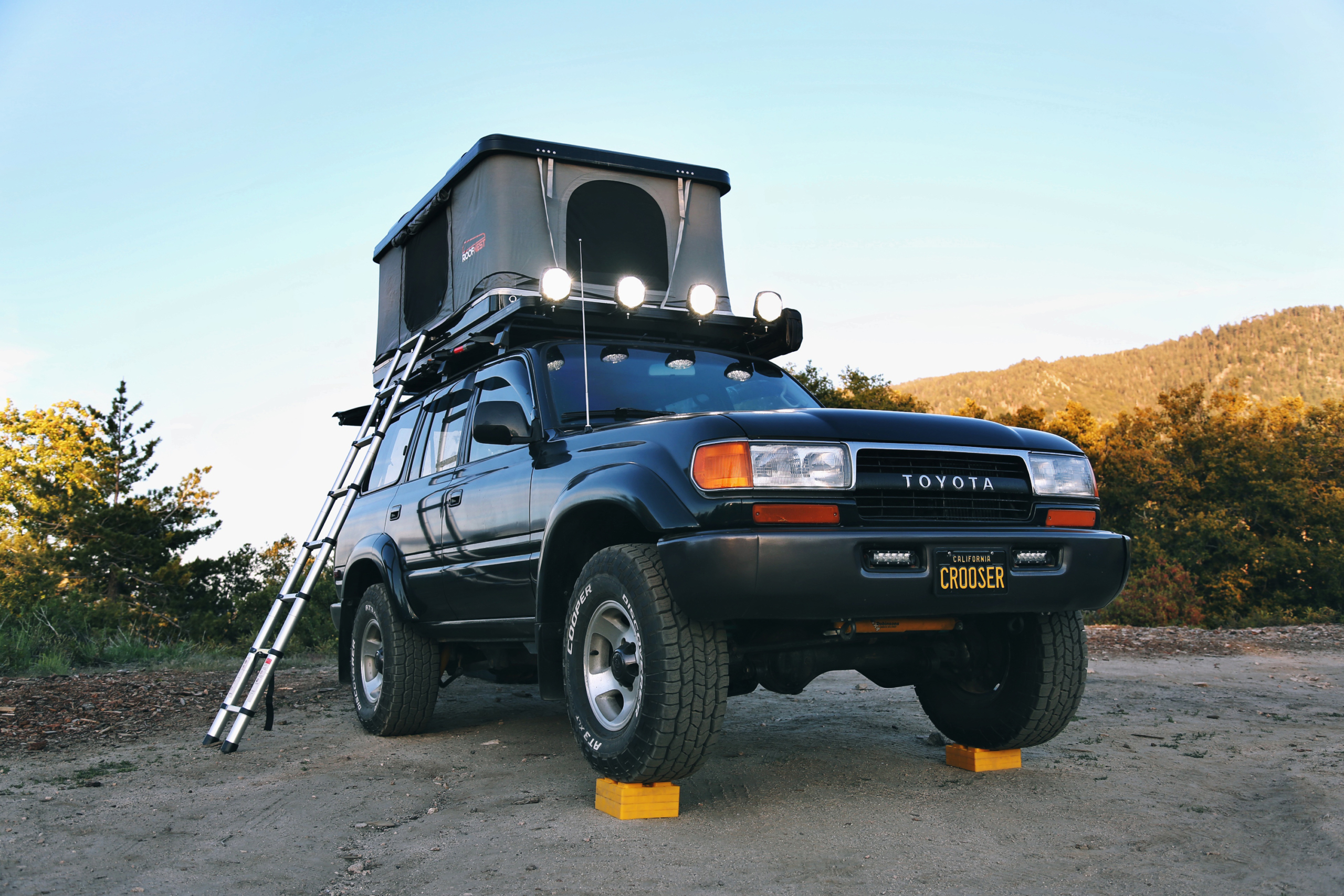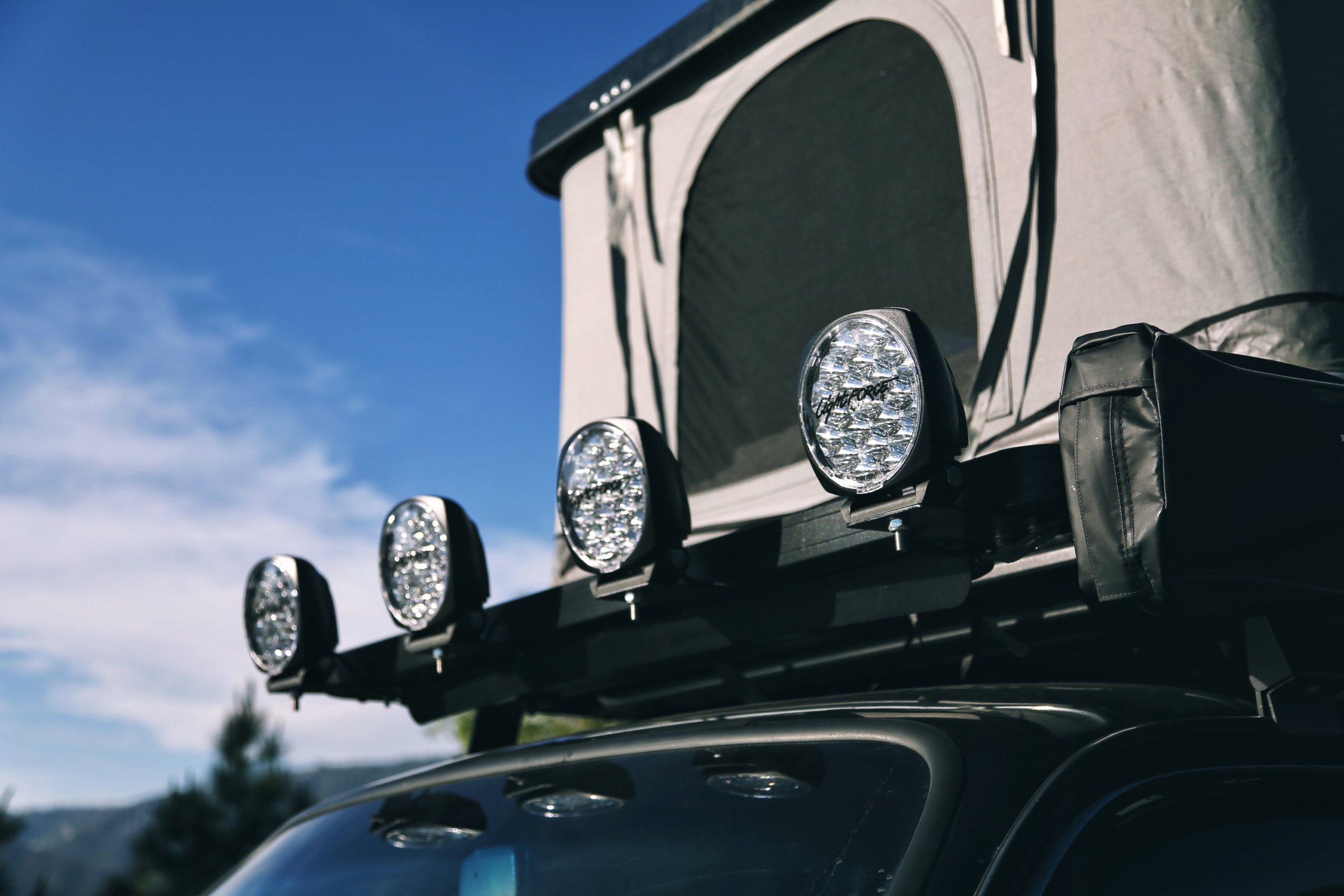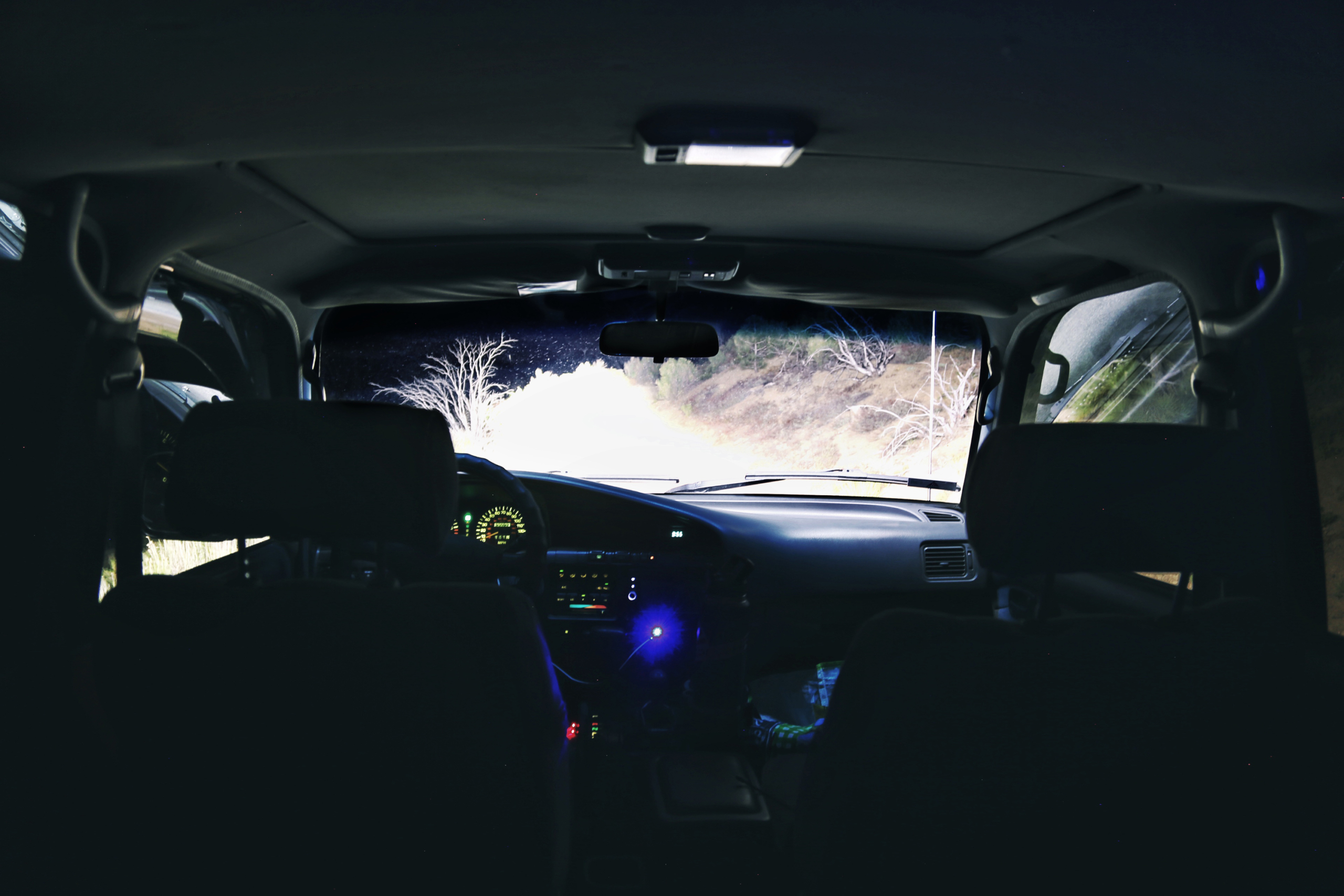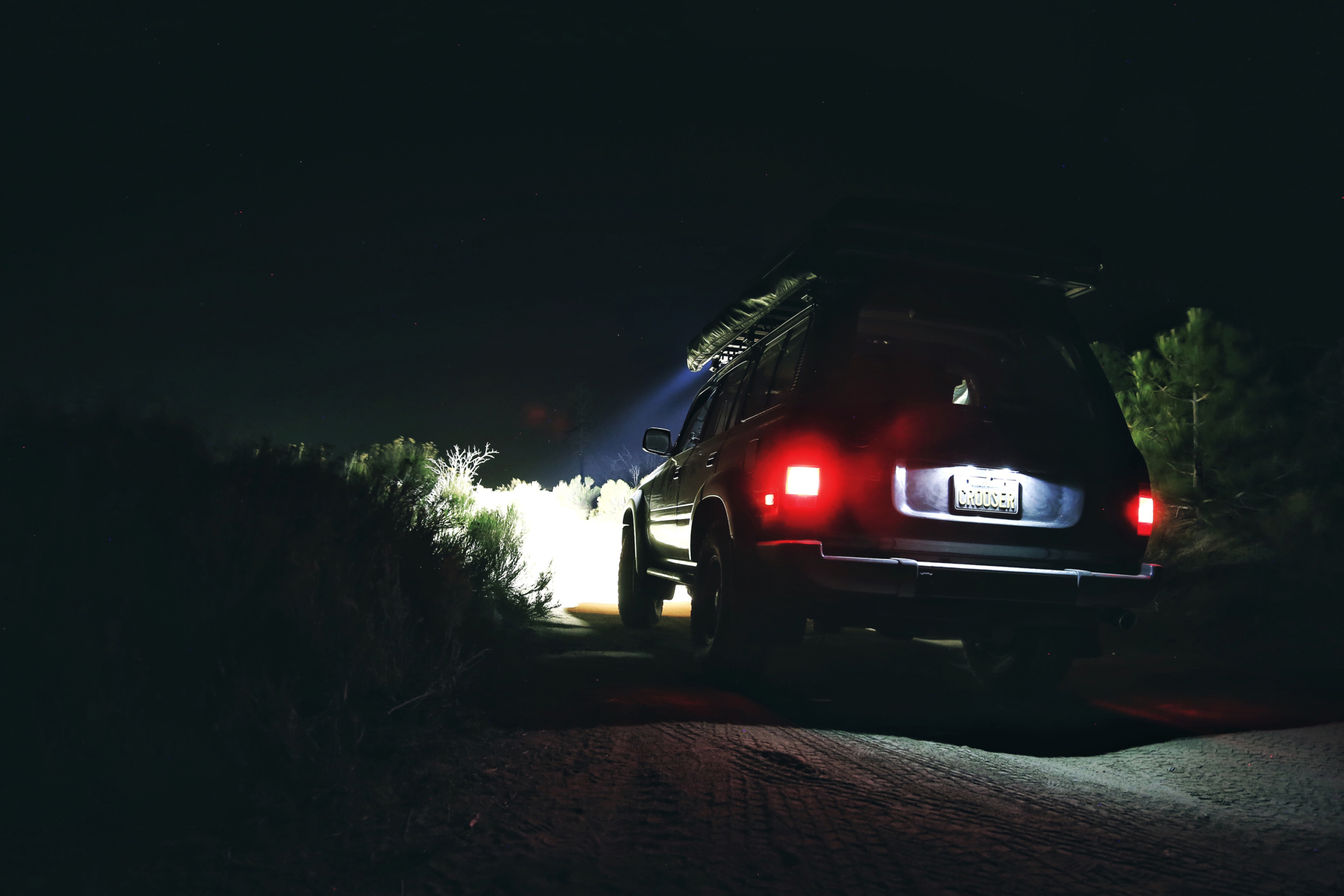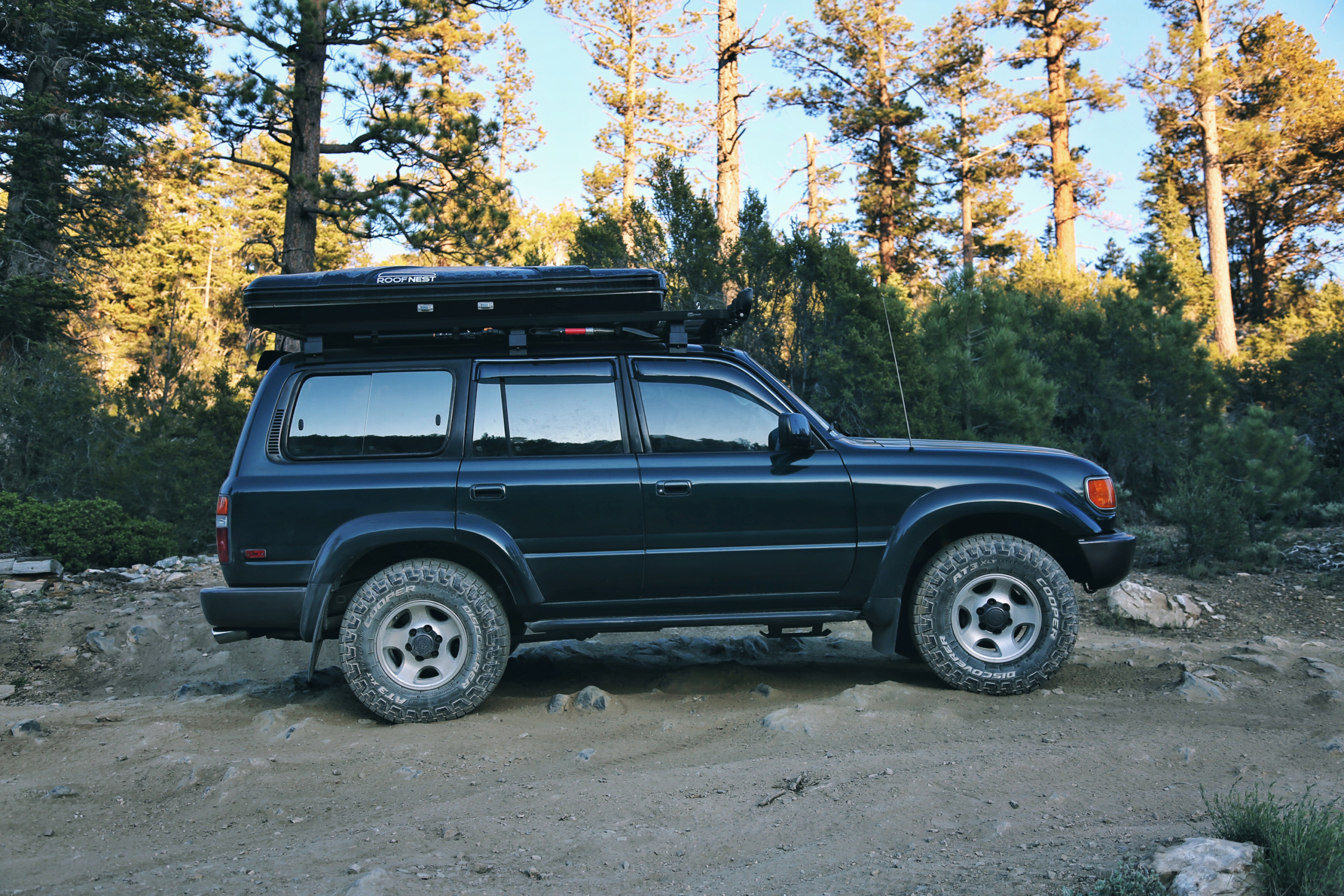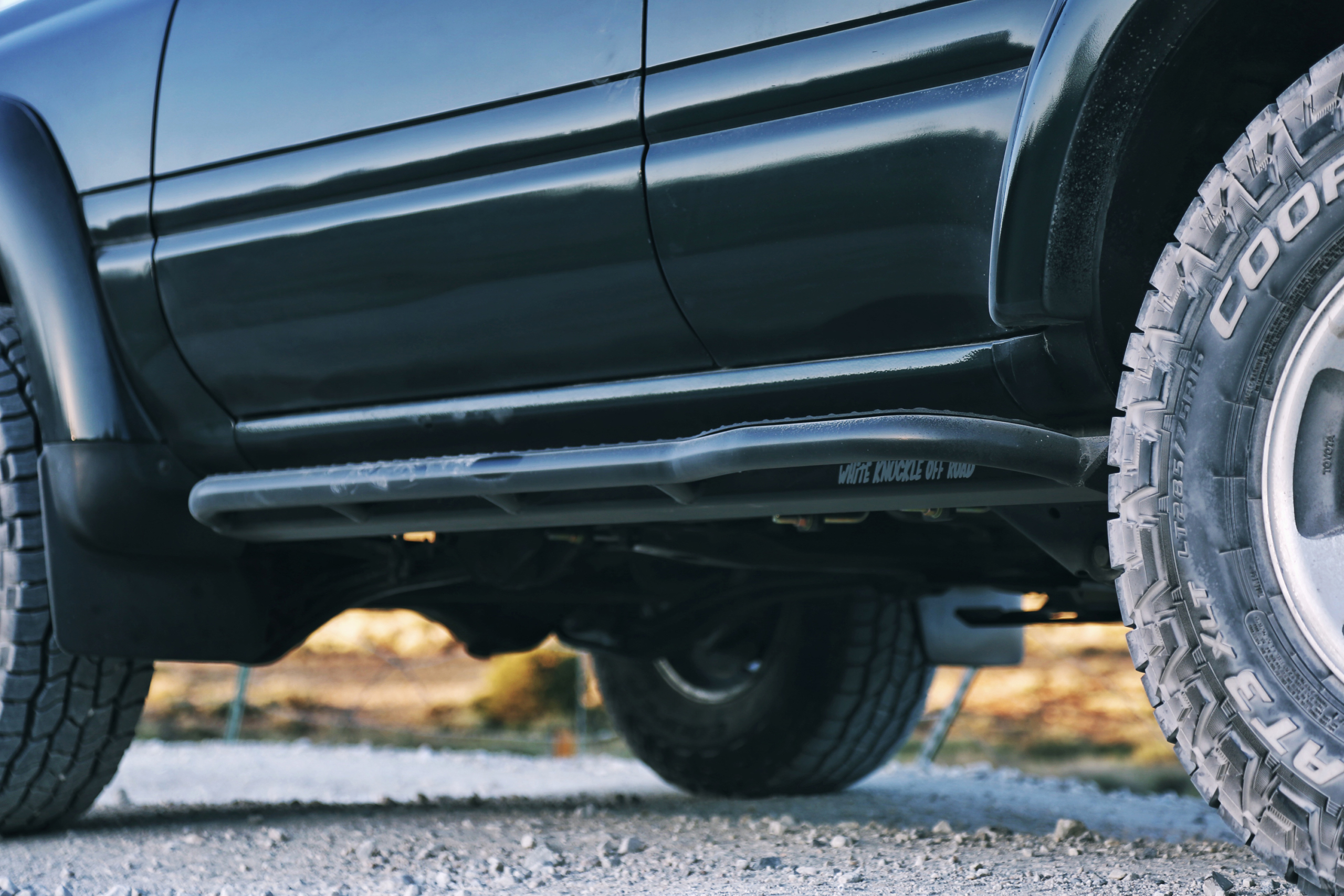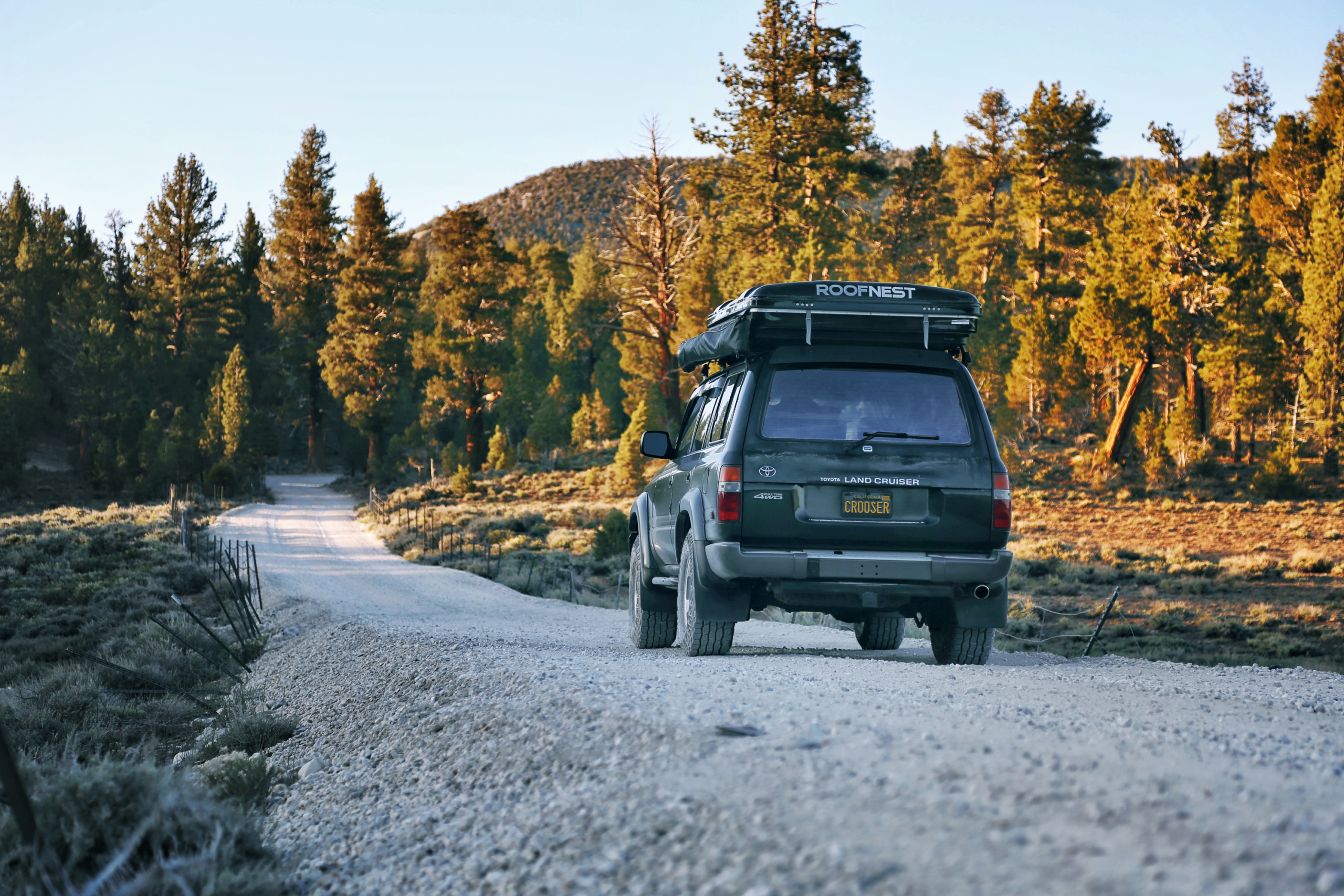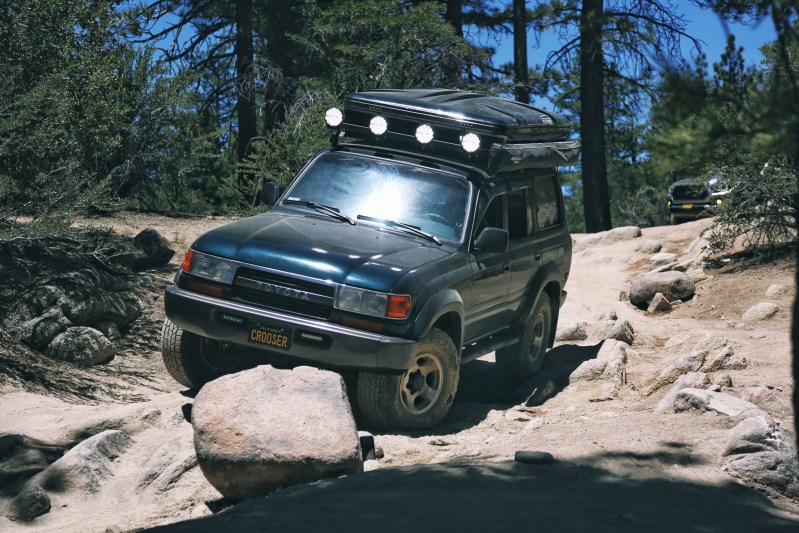
The concept of overlanding is a simple one: To explore without regard for road conditions, hospitality, or Wi-Fi.
This style of travel is first and foremost an attitude. That ballsy Prius driver who scampered his way to an offbeat overlook (we’ve seen miracles on the trail, folks) is more aligned with the spirit of overlanding than the owner of the blinged-out Jeep Wrangler that accidentally mobbed a curb on his way to Starbucks. If you aren’t ready to risk some branch pinstripes or a flat tire, you’re best sticking to the well-worn campgrounds.
Attitude does hit a wall at some point, however. Even an accommodating Land Rover can’t tow your Prius up a rock wall. So if you want to explore deeper, to decrease the risk of being stranded, and to (let’s be honest) take better Instagram photos, you’ll need certain pieces of equipment and geometry.
Good tires, ground clearance, and recovery gear are the best places to start. These elements will be sufficient to tackle the majority of obstacles you’ll encounter on a trail. Add in four-wheel drive and you can manage about 80% of the unforeseen. But let’s say you want to feel confident with 99% of the roads less traveled (100% being to literally levitate over a problem). Considering the factors that would otherwise slow or stall your progress, ranking high on the list are visibility and damage.
The sun will always set, but it won’t always do so at a convenient time. You may be within a mile of your campsite when the afterglow fades – then what? If your high beams can’t illuminate all of the potential obstacles ahead, you’ll be forced to wait out the night. That is, unless you have a good set of driving lights.
LightForce, an Australian outfitter, has been reigning in illuminating the darkness for over 35 years. Trusting the brand’s experience, we fit a pair of round Venom LED driving lights to our FZJ80 Toyota Land Cruiser for a decidedly Jurassic Park aesthetic. Each of the cast aluminum housings are powder-coated black for durability and contain 21 individual LEDs making 75W of light. Light bars are perhaps more effective, but they don’t complement the style of a rounded ‘90s truck.
Wiring the included switches to control the outer lights and inner lights separately, we can pivot and operate the corner lights like spots or join them to the center pair to deliver incredible forward projection. Equipped with a set of clear combination beam filters, the Venom LEDs send light wide and far to illuminate the trail. It’s astonishing what visibility does to driver confidence as we forge ahead on narrow mountain switchbacks. And though U.S. laws prohibit the use of driving lights located above the windshield during the day, those who position their Venom LEDs near the grille have the option of day and night running light settings.
As damage control goes, one of the best defenses is a set of rock sliders. Even if you don’t fancy rock crawling, overlanding puts you in contact with threats to your vehicle’s rocker panels, brake lines, and other underbody essentials. Sliders both protect your truck and can help you slip over or through obstacles.

White Knuckle Off Road, based in Apple Valley, CA have been saving 4×4 enthusiasts from expensive and trip-halting harm for over a decade with their heavy-duty sliders. Custom made for dozens of popular rigs, White Knuckle’s sliders are offered in two grades of tube steel, include protection for catalytic converters, and can be accessorized in useful ways.

For our 1994 Land Cruiser, we choose black powder coated DOM steel tubing that fits neatly between the Toyota factory mud flaps. At a reduced 10-degree angle and covered with diamond top plating, the sliders double as steps into our lifted rig. This makes accessing the Roofnest rooftop tent and items stored on the Front Runner rack a breeze. Our dog also appreciates the assist between ground and backseat platform.

On the trail, sliders do as much to bolster driver confidence among boulders, ledges, and fallen trees as the Venom lights do in pitch dark conditions. While it’s still possible to inflict underside damage with haphazard wheeling, a good line through tricky terrain largely removes the fear of what a scraping noise might mean (it’s just the sliders doing their job).
Keep in mind that a set of lights and sliders is no guarantee you’ll always be able to conquer the unknown. Doing something dumb or dangerous to avoid having to turn around or find a safer route is never recommended. Instead, these accessories should be used as tools to unlock more exciting adventures and to put you at ease in more technical situations.
With the spirit of that ambitious Prius driver and the equipment of a genuine off-roader, you’re destined for overland greatness.

